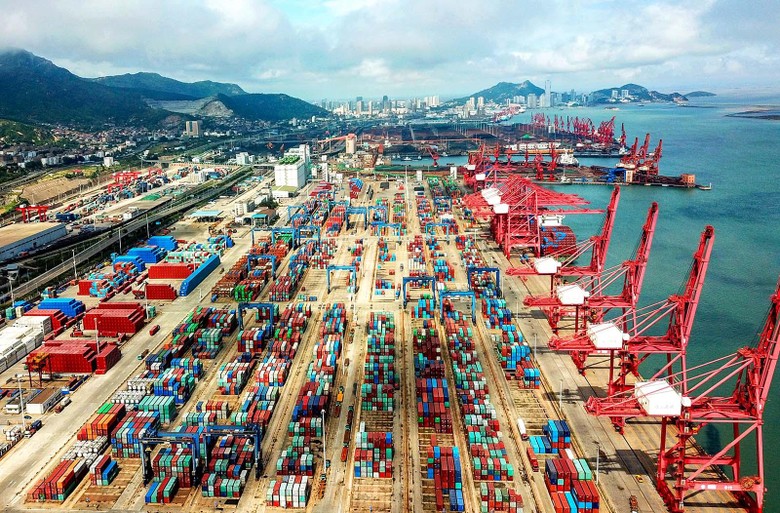
Recently, HSBC released a report looking back at RCEP and its effects on Asian trade and economy after 8 months in effects.
Checking in amid trade challenges
• Eight months on from the start of the RCEP trade deal, we find Asian markets are building deeper trade ties
• According to ADB estimates, Japan and South Korea willexperience the largest percentage jump in exports in 2030…
• …while RCEP will likely deliver the biggest productivity kick to economies like Thailand, Vietnam and Malaysia
RCEP to the rescue
From lingering supply chain bottlenecks to the slowing global economy, trade is being challenged across Asia. However, one long-term positive is that regional trade is gaining traction (see Goodbye globalization? 21 Apr 2022). Much of this in Asia is thanks to the Regional Comprehensive Economic Partnership (RCEP) that kicked off at the start of the year with 15 Asian economies as members, with more on the way. The biggest direct advantage of joining RCEP is that tariffs on over 90% of goods will eventually be eliminated, while expansive rules of origin will facilitate the sourcing of inputs from within the bloc. Also, the comprehensive agenda should boost growth in investment, intellectual property and e-commerce.
How is it going?
Eight months into the implementation of RCEP, HSBC checks in to see how it’s going. HSBC finds several nations have already taken advantage of this accord to strengthen regional trade ties. For instance, Malaysia (approved the deal in mid-March) is working with China’s Chongqing province to consider launching investment projects related to electronic vehicles (EV). While Japan, one of the largest car manufacturers in Asia, has entered into a trade deal with China and South Korea for the first time, thanks to RCEP.
Crucially at this time of accelerating inflation, preferential tariff treatment will help producers across RCEP source inputs at lower cost, strengthening their global competitiveness. The agreement will therefore also be key to spurring FDI flows into the region, whether from member economies or from outside.
RCEP overview
Since taking effect at the beginning of the year, several businesses have rushed to take advantage of the new deal. For example, table 1 sets out a number of certificates of origin under RCEP issued by various Chinese customs authorities. Meanwhile, there are 43,600 RCEP certificates of origin issued between January and May in 2022, which are valued at USD2.08bn, according to the China Council for the Promotion of International Trade (CCPIT). Uptake of RCEP trade preferences is only likely to grow as the deal continues to be implemented and further liberalization is phased in.
Beyond making use of tariff concessions, there are other benefits, too. For Japan, signing up to RCEP meant it was the first time it has entered into a free trade agreement with China. On the back of RCEP, Chinese automaker Guangxi Auto quickly struck a deal with Japanese EV startup ASF Company to produce a range of small EV commercial vehicles in China for sale in Japan. The two companies intend to collaborate on developing prototypes as per an agreement signed at the RCEP Business Leaders Forum earlier this year (Just Auto, 10 January 2022).
An express sea route between Qingdao in China and Osaka in Japan also opened in June 2022 after Qingdao and Dongchen Line Co agreed a strategic cooperation deal once RCEP took effect. Under this route, vessels can be directly boarded with loading equipment (e.g. trucks) and cargo, with the sailing time cut from two to three days to just 36 hours (Global Times, 26 June 2022).
What’s next? Implementation and expansion
As we highlighted earlier, RCEP was recently approved by Indonesia and is close to being ratified by the Philippines, two of the three biggest economies in ASEAN. Myanmar has approved the deal but New Zealand and the Philippines said that it won’t accept its ratification given the political situation in Myanmar (ABC News, 18 February 2022). India refused to join the accord, and while the door remains open for it to join, we think it is unlikely to try as India struck a bilateral deal with Australia recently and is pursuing negotiations with the UK (The Hindu, 20 March 2022).
Other economies will be able to join from 1 July 2023. For instance, Hong Kong has applied to join, as around 70% of its trade already takes place with RCEP members. A successful bid would be a natural extension for the economy given its openness to international trade and given the fact that it already has trade deals in place with 13 RCEP members (the 10 ASEAN economies, mainland China, Australia and New Zealand).
Joining the deal could help strengthen Hong Kong’s role as a professional services hub as members will fully open at least 65% of the services sector to foreign investors, and it could provide new opportunities for Hong Kong’s logistics sector (e.g. from handling more intra-regional trade flows) and for businesses located in the Greater Bay Area (GBA) that use Hong Kong as a springboard to go global and enter new markets.
Elsewhere, Bangladesh’s Trade and Tariff Commission has conducted preliminary analysis on the possible benefits of joining the deal and the costs of remaining outside the agreement. Sri Lanka could be another potential member further down the line (The Economist, 16 August 2022). (Note that the UK, mainland China, and Taiwan have meanwhile all applied to join the CPTPP.)


























